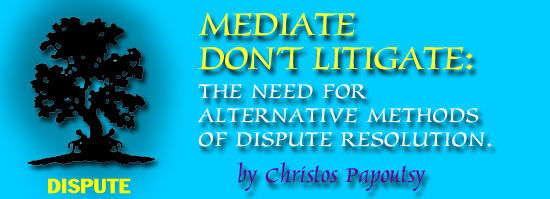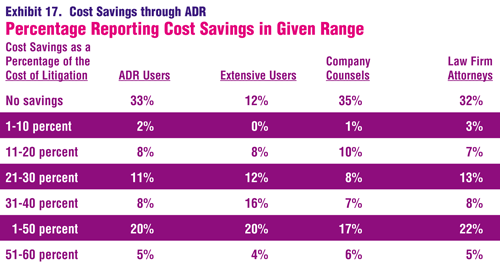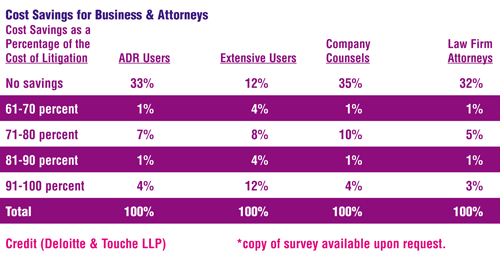 |
||
 |
||
| What is mediation? |
What type of disputes can be resolved through mediation? |
|
CHRISTOS PAPOUTSY, prior director of U.S. Arbritration & Mediation of New England's Northern New England Office, has been an active mediator for many years. With over thirty years of business experience to his name as owner, president and CEO of several companies, Mr. Papoutsy understands the importance of negotiating and communicating, and knows the kinds of contract disputes, miscommunications and misrepresentations that sometimes occur in business relationships. Drawing from his career experience and educational background, which includes a B.S. in finance, an honorary law degree, and recent masters work, Mr. Papoutsy has successfully mediated various commercial and community actions in both New Hampshire and Massachusetts. Mr. Papoutsy is a member of the New Hampshire Mediators Association. |
| What are the benefits of mediation? |
| What takes place at the mediation session? |
| SAMPLE MEDIATION CLAUSE Parties to contract, lease, etc. may agree in advance to mediation any disputes that arise in the future. The following clause may be used "as is" or may be altered by the parties. "Mediation involves each side of a dispute sitting down with an impartial person, the "mediator", to attempt to reach a voluntary settlement. Mediation involves no formal court procedures or rules of evidence, and the mediator does not have the power to render a binding decision or force an agreement on the parties. In the event a dispute shall arise between the parties to this _______________ [contract, lease, etc.] the parties agree to participate in at least four hours of mediation in accordance with Mediation Procedures of ___________________ [Name of the vendor who is administrating the mediation, with address and phone number]. |
| COST SAVINGS FOR BUSINESS & ATTORNEYS The evidence is clear, 78% of extensive uses of Impartial Dispute resolution save money. A recent survey of attorneys specializing in litigation and general council of Fortune 100 companies, conducted by Deloitte & Touche Litigation Services revealed significant court savings when alternative dispute resolution was used. How effective is ADR? When asked about the actual cost savings which occurred when ADR was used, 67 percent of all users and 78 percent of extensive users said they saved money (exhibit 17). Savings typically ranged between 11 and 50 percent of the cost of litigation (47 percent of users had savings in this range). A very small percentage (3 percent) of law firm attorneys said ADR was more expensive than litigation. No company counsel reported an increase in costs because of ADR. Below are excerts from page 14 and exhibit 17 (cost savings through ADR)  
|
